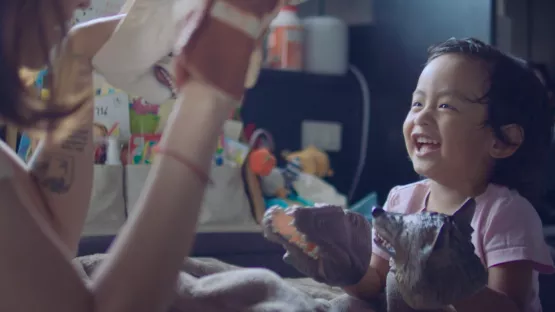Cultivating Character In A Day Of Fun
Children are master copycats – and many character traits are created b.... read more


Listening 101
Listening to your toddler is essential to emotional growth. By listening to what they have to say, you can make them learn how to identify their feelings and solve problems. You can start the conversation by simply asking, ‘‘How’s your day?’’ With an open-ended question like that, you’ll get your child to open up about their emotions and work your way through.
Speak and Show Empathy
Communication is key! Talk to and empathise with your child as much as you can in any sort of situation. This will prompt imagination and empathic situations. For example, ‘‘Tommy looks like he wants a cookie too. Why don’t you share some with him?’’
Make Others Feel Better
Learning and demonstrating empathy to others is important. This is so that your child can learn to not only feel better about themselves, but also make others feel better. This can be done alone with your child or with other children. A good play environment lets children learn more about emotions and how to react to them too. For example, ‘‘Your little brother is feeling sad because you took his LEGO set. Why not ask if he would like to play together?’’
Encourage Pretend Play
Have fun with your child with pretend play! It is a type of roleplay that encourages interaction with others while dressing up as someone else. By putting your child in others’ shoes, they can learn to explore different feelings and reactions. Your child can pretend to be a mommy/daddy, teacher, veterinarian (perfect with stuffed animal toys!), and many more.
Read Books About Feelings
Make reading a fun and bonding pastime with your child. Reading allows a two-way interaction while expressing emotions in a heartening manner. It’s a great indoor pastime that lets your chld learn about empathy. Choose books with stories such as My Many Coloured Days by Dr. Seuss, Making Faces: A First Book of Emotions, and The Feelings Book by Todd Parr.
Start encouraging empathy in your children by further exploring playtime with these tips. Learning and teaching empathy takes time and patience, so have fun at it while building good characters!


